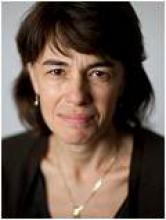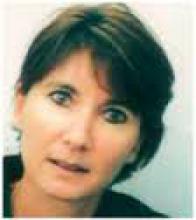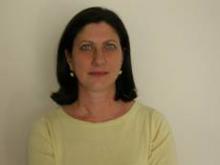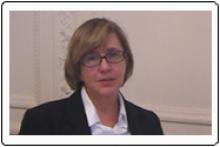- Home
- About
- Partners
- Newcastle University
- University of L'Aquila
- University of Manchester
- Alacris Teranostics GmbH
- University of Pavia
- Polygene
- Consiglio Nazionale delle Ricerche
- INSERM
- Certus Technology
- Charité Universitaet Medizin
- GATC Biotech
- University Medical Center Hamburg Eppendorf
- Evercyte GmbH
- University Hospital of Cologne
- PRIMM Srl
- University of Freiburg
- University of Antwerp
- Finovatis
- Research
- SYBIL at a glance
- Bone
- Growth plate
- Desbuquois dysplasia
- Diastrophic dysplasia
- MCDS
- Osteopetrosis
- Osteoporosis
- Osteogenesis imperfecta
- Prolidase deficiency
- PSACH and MED
- Systems biology
- SOPs
- Alcian Blue staining
- Bone measurements
- BrdU labelling
- Cell counting using ImageJ
- Chondrocyte extraction
- Cre genotyping protocol
- DMMB assay for sulphated proteoglycans
- Densitometry using ImageJ
- Double immunofluorescence
- Electron microscopy of cartilage - sample prep
- Extracting DNA for genotyping
- Grip strength measurement
- Histomorphometry on unon-decalcified bone samples
- Immunocytochemistry
- Immunofluorescence
- Immunohistochemistry
- Quantitative X-ray imaging on bones using Faxitron and ImageJ
- Skeletal preps
- TUNEL assay (Dead End Fluorimetric Kit, Promega)
- Toluidine Blue staining
- Toluidine Blue staining
- Von Kossa Gieson staining
- Wax embedding of cartilage tissue
- Contact Us
- News & Events
- Links
- Portal
INSERM
Founded in 1964, the French National Institute of Health and Medical Research (Inserm) is a public scientific and technological institute which operates under the joint authority of the French Ministry of Health and French Ministry of Research. As the only French public research institute to focus entirely on human health, in 2008 Inserm took on the responsibility for the strategic, scientific and operational coordination of biomedical research. This key role as coordinator comes naturally to Inserm thanks to the scientific quality of its teams and its ability to conduct translational research, from the laboratory to the patient’s bed. The decree adopted in March 2009 will enable Inserm to perform its research missions in the face of the new scientific, health and economic challenges of the 21st century. Scientific monitoring and expertise are now part of the Institute’s official missions. In early 2008, 10 thematic institutes were created in the light of this new coordination role, in association with Inserm. The aforementioned decree secures a long-term future for them and clearly defines their remit, an inventory of French research in their field, how this research is to be managed and their objectives. Department of Genetics, INSERM Unit, team "Molecular and physiopathological bases of osteochondrodysplasia" was created in 1998 and employs 4 employees, 5 scientists and 3 students. They ahve extensive expertise in human skeletal dysplasias, identification of genes (exome sequencing in house life technologies), RT-PCR, molecular biology, endochondral and membranous ossification, mouse model of skeletal dysplasia, bone organotypic culture, cell culture (fibroblast, chondrocytes, osteoblasts), protein assays (ELISA, WB), gene expression pattern, transcriptome analysis and in vivo studies. “Bone and Joint” unit is composed of 11 academic researchers organised into four different teams together with 8 post doctoral researcher and 10 doctoral students. The unit was created in 2004 and renewed in 2009 after an A evaluation.
INSERM roles in SYBIL
INSERM will directly contribute to WP1-8 with a high input, focusing on FGFR3 related chondrodysplasia and studying various fgfr3 mouse model phenotypes available in the laboratory and developing pharmacological approaches to counteract FGFR3 activating mutations by testing in vitro and in vivo CNPeptide analogue, tyrosine kinase inhibitors, antibodies and growth factors. INSERM also conducts research leading to better understanding of the role of ADAMTS(L) proteins responsible for acromelic dysplasia in the microfibrillar network and TGFB signalling, using cellular and adamtsl2 or fbn1 mouse models and design effective treatment in testing the efficiency of TGFB neutralizing antibodies. and functional studies of newly identified genes and generation of appropriate animal models.
Facilities available at INSERM include DNA sequencing, animal facility, cellular biology facility, histological, imaging and bioinformatics platforms.
INSERM researchers involved in SYBIL
"Molecular and physiopathological bases of osteochondrodysplasia" team
 Prof Valerie Cormier-Daire – head of the research team, Identification of 10 genes responsible for SD in the last 10 years and development of functional studies. For ADAMTS(L) project and TGFB signaling, generation of appropriate mouse models (adamtsl2 and fbn1).
Prof Valerie Cormier-Daire – head of the research team, Identification of 10 genes responsible for SD in the last 10 years and development of functional studies. For ADAMTS(L) project and TGFB signaling, generation of appropriate mouse models (adamtsl2 and fbn1).
 Dr Laurence Legeai-Mallet – head of the FGFR3 team; expertise: molecular and cellular biology, chondrocyte and osteoblast culture, transcriptomic, bone organotypic culture and mouse model. Phenotyping of fgfr3 mouse models (n =4), establishment of human immortalized chondrocytes and osteoblasts. Pharmacological assay.
Dr Laurence Legeai-Mallet – head of the FGFR3 team; expertise: molecular and cellular biology, chondrocyte and osteoblast culture, transcriptomic, bone organotypic culture and mouse model. Phenotyping of fgfr3 mouse models (n =4), establishment of human immortalized chondrocytes and osteoblasts. Pharmacological assay.
“Bone and Joint”unit
 Prof Martine Cohen-Solal – professor of cell biology, expertise in bone and cartilage cell biology, expertise in mice models of joint instability for development of osteoarthritis, mice models of bone loss (ovariectomy)
Prof Martine Cohen-Solal – professor of cell biology, expertise in bone and cartilage cell biology, expertise in mice models of joint instability for development of osteoarthritis, mice models of bone loss (ovariectomy)
Dr Corinne Collet– molecular and cellular bone biologist, responsible of genetic diagnosis of the rheumatology department
 Prof Marie-Christine de Vernejoul– director of INSERM U606, 25 years experience, phenotype of patients with bone disease, expertise in in vivo and in vitro bone biology
Prof Marie-Christine de Vernejoul– director of INSERM U606, 25 years experience, phenotype of patients with bone disease, expertise in in vivo and in vitro bone biology



